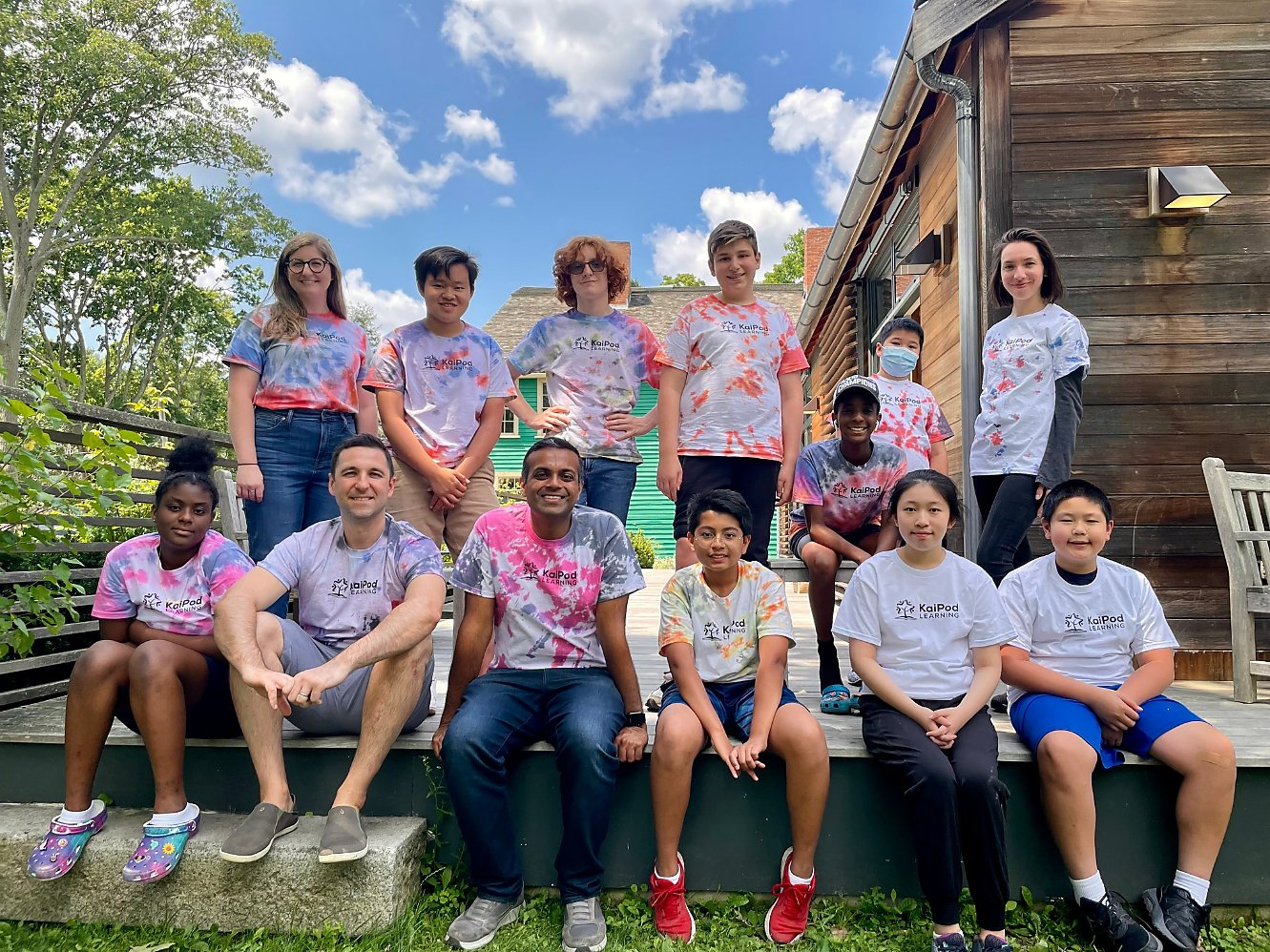Most of the homeschoolers and cyberschoolers that I know want some form of hybrid learning—where the children are home some days and learning in a group other days. For my family, co-ops and à la carte classes at local private schools have been tremendously helpful. When my kids were younger, it was mostly a social outlet (for them and me). As they got older, it was an essential part of our learning plan since I found it hard to do science labs and foreign language at home.
Now that homeschooling and online charter schools are gaining popularity, more and more families are seeking some level of in-person support for their children’s education. In addition to social and academic reasons, many families need help with childcare if they don’t enroll their children in full-time school.
These were among the factors that motivated Amar Kumar to start KaiPod Learning. Amar worked in online education for several years, and he knows how transformative it can be.
But he saw that some virtual school students struggled with academic enrichment and social connections. KaiPod aims to help solve these problems by providing a place for students to work where they are surrounded by peers and supported by an academic coach.
Flexibility is key with KaiPod Learning. Each center is available daily, and families can choose how many days they use it. The price is pro-rated depending on use. Each student has access to individual academic support from a KaiPod learning coach. And there are daily enrichment activities, like art, music, and coding, as well as social time.
KaiPod separates the academic journey from social and emotional development. Students can work on their own curriculum at their own pace while in the company of kids their age.
The educational disruptions that have occurred in the name of COVID-19 have made many parents realize how little say they had in their children’s education. Battles over curriculum—which are as old as public schooling itself but have become very pronounced over the last year—have added to parental ire. Many are seeking education alternatives in response.
Options like KaiPod enable children from a variety of backgrounds to enjoy the benefits of a more flexible education model. Amar says, “KaiPod provides space to learn and grow. Space in the physical sense because it’s a place where kids come to learn and collaborate. And space in the figurative sense because it gives parents a space where they’re supported in their efforts.”

